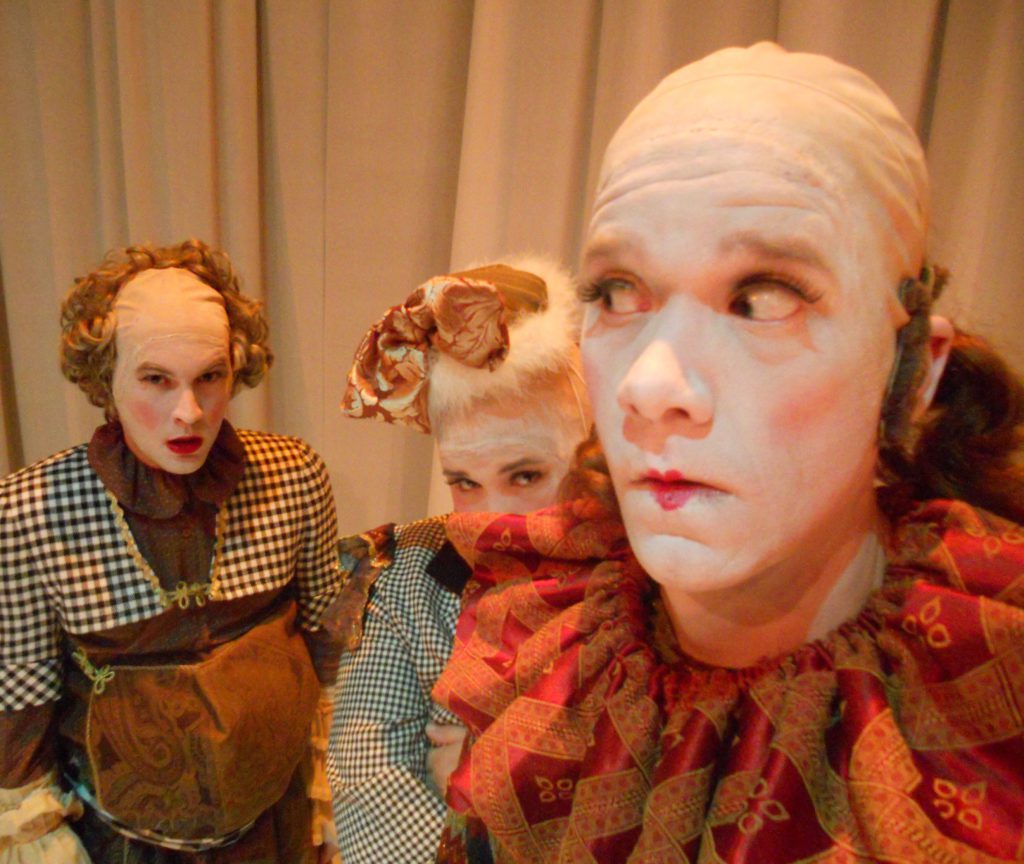Tommy Lee Jones Goes to the Opera Alone is a tough act to follow, but Buntport Theater Company is going for it with the last show of the season, The Roast Beef Situation. The play, which opens at 8 p.m. tomorrow, is old- — as in eighteenth-century, clown-troupe-style Commedia dell’Arte old — school comedy, with a fresh satirical take on censorship.
The Roast Beef Situation begins with a true story, which goes like this: In 1787, a clown named Carlo Delpini was thrown in jail, along with the rest of his company, for speaking the words “roast beef” on stage without any music playing in the background. Per Lord Chamberlain’s Licensing Act of 1737, only licensed theaters performing approved material could perform words on stage without music.
Buntporters stumbled on this piece of trivia in an arts and culture magazine based out of New York, called Cabinet. From there, they brainstormed and collectively penned The Roast Beef Situation, their 32nd production together. “In the process of him being in jail with all the people in the show, he kind of takes back ‘roast beef’,” says Brian Colonna, the Buntport collaborator who will play Delpini. “We kind of just blew it up right there, based on that little story about the clown going to jail.”
The Roast Beef Situation is layered with a condemnation not just of the act of censorship that sets the play in motion, but of the absurdity of the law and government enforcement of it. The levity of the clown comedy is interrupted by political barbs directed at authority. With the theater emerging as an art form, says Colonna, “the establishment is a bit concerned people would get to say things they wouldn’t approve of. Performers were starting to do that. The Lord Chamberlain, who made the law, was being satirized at the time.”
While creating clown comedy, Buntport had to deal with the dimension of creepiness that clowns have taken on in recent years, thanks to Pennywise, John Wayne Gacy and Poltergeist. “I feel like people hear ‘clown’ and they’re like, ‘Yeah, I don’t think I’ll go see that,'” Colonna admits. “Poltergeist ruined clowns for everyone.” But these are not modern, conventional circus clowns; they are designed largely in the Commedia style, with Delpini dressed as stock-character Pierrot, with a white buttoned frock and cap. There is nothing creepy about them; they’re just ridiculous.
“They’re inspired by the real outfits,” says Colonna of the costume design. “Erin (Rollman) made them, and at the moment they’re one of my favorite aspects of the show.”
There is always humor to be found in laughing at the inadequacies of others. The common themes of competition and self-doubt among artists did not escape Buntport as places to find humor. “We mention Grimaldi, who is probably the most famous clown from that era,” Colonna notes. “Delpini is only a footnote. His friends bring up Grimaldi constantly.”
And, as always with Buntport comedy, the company hopes for more than just laughs. “There’s a line that goes, ‘To know what is ridiculous, you must know what is sublime,'” Colonna says, drawing a connection between the text and the experience he and his collaborators hope to create with this show. “I think people will mostly get the ridiculous, but hopefully, for one second, the sublime will pop up.”
-Shaughnessy Speirs, May 24, 2012, blogs.Westword.com
